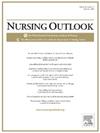Understanding nurses’ perspectives on strikes: A qualitative case study in Southern California
IF 3.7
2区 医学
Q1 NURSING
引用次数: 0
Abstract
Background
Nursing work stoppages disrupt patient care and heighten nurse burnout, driven by critical psychosocial and job-related factors.
Purpose
This study examines the factors contributing to nursing work stoppages in Southern California, using Social Movement Theory (SMT) and the Job Characteristics Model (JCM) to explore nurse dissatisfaction and collective action.
Methods
This qualitative study employed semi-structured interviews with 15 nurses and a focus group. A thematic analysis identified key themes related to emotional, structural, and professional factors. Data were coded and analyzed iteratively to ensure reliability.
Discussion
Findings reveal that emotional strain, limited autonomy, insufficient leadership support, and chronic understaffing drive dissatisfaction and strikes. Nurses emphasized the need for better administrative support and improved staffing policies.
Conclusions
Addressing emotional strain, enhancing administrative support, and refining staffing policies are essential to reducing work stoppages and improving patient care.
了解护士对罢工的看法:南加州的定性案例研究
在关键的社会心理和工作相关因素的驱动下,护理停工扰乱了患者护理并加剧了护士的职业倦怠。目的本研究运用社会运动理论(SMT)和工作特征模型(JCM)探讨南加州护理人员的不满和集体行动,探讨影响护理人员停工的因素。方法采用半结构化访谈法对15名护士进行定性研究。主题分析确定了与情感、结构和专业因素相关的关键主题。对数据进行迭代编码和分析,以确保可靠性。讨论结果表明,情绪紧张、有限的自主权、领导支持不足和长期人手不足是导致不满和罢工的原因。护士们强调需要更好的行政支持和改进人员配置政策。结论解决情绪紧张,加强行政支持,完善人员配置政策是减少停工和改善患者护理的关键。
本文章由计算机程序翻译,如有差异,请以英文原文为准。
求助全文
约1分钟内获得全文
求助全文
来源期刊

Nursing Outlook
医学-护理
CiteScore
6.20
自引率
7.00%
发文量
109
审稿时长
25 days
期刊介绍:
Nursing Outlook, a bimonthly journal, provides innovative ideas for nursing leaders through peer-reviewed articles and timely reports. Each issue examines current issues and trends in nursing practice, education, and research, offering progressive solutions to the challenges facing the profession. Nursing Outlook is the official journal of the American Academy of Nursing and the Council for the Advancement of Nursing Science and supports their mission to serve the public and the nursing profession by advancing health policy and practice through the generation, synthesis, and dissemination of nursing knowledge. The journal is included in MEDLINE, CINAHL and the Journal Citation Reports published by Clarivate Analytics.
 求助内容:
求助内容: 应助结果提醒方式:
应助结果提醒方式:


